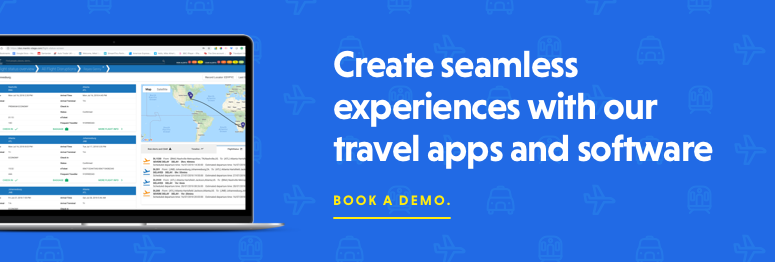Maximising Efficiency: The Benefits Of Automating Airline Waiver Administration For Travel Management Companies (TMCs)
Posted by Mike Atherton on 23 February, 2023

Southwest Airlines ended 2022 with the unfortunate record of cancelling over 15,000 flights during the week of Christmas due to a system failure compounded by a nationwide winter storm.
Other airlines have also faced cancellations due to technical issues and staff shortages during bad weather, such as Spirit Airlines cancelling 2,800 flights over 10 days, American Airlines and Southwest cancelling 2,000 flights each in a brief period, and 2023 started with bang with an FAA technical glitch cancelling thousands of flights.
Travelers are rightly disappointed when their flight plans are disrupted due to unforeseen events such as severe weather, natural disasters, or health pandemics.
To help manage the disruption, airlines issue waivers that allow travelers to make changes or cancellations to their bookings without incurring a fee or penalty. These waivers are managed and administered by Travel Management Companies (TMCs) assisting travelers by making the necessary changes to their travel plans and minimizing costs.
However, the process of administering airline waivers can be time-consuming and complex for TMCs. TMCs need to check the availability of a waiver, review its details, and verify if a flight is eligible for a fee waiver. The TMC then needs to apply the waiver code to the traveler's itinerary to indicate that the changes or cancellations should be processed without incurring additional charges. The waiver code acts as a flag in the reservation system, and if the TMC puts the wrong code into the itinerary, it may result in a debit memo issued by the airline. An airline debit memo is a request for payment made by an airline to a TMC, for a discrepancy between the amount charged for a ticket and the fare that was actually owed. This can occur for various reasons - fare changes, errors in booking such as a missing or incorrectly applied waiver code, or changes in taxes or fees. The debit memo represents the amount the airline is asking the TMC to pay, and the TMC then needs to decide to recover the cost from their client - which might be embarrassing as it highlights a processing error on their part - or absorb the cost themselves.
The manual process of administering airline waivers can lead to errors, inefficiencies, and added costs for TMCs. However, there is an opportunity to automate this process, which can help to streamline the process and minimize the risk of errors. By automating the administration of airline waivers, TMCs can quickly and easily apply the correct waiver code to the traveler's itinerary, ensuring that the correct waiver is applied, and reducing the risk of a debit memo being issued.
Automating the administration of airline waivers offers many benefits for TMCs. It can help to increase efficiency, reduce the risk of errors, and minimize the costs associated with manual administration.
Mantic Point’s waiver automation tool removes the need for manual intervention by using technology to evaluate the waiver event against the booking, identifying which code should be applied, writing it back into the PNR, and requeueing it so it can be processed by the airline.
If you’d like to learn more about end-to-end waiver automation then contact us for a demo.
Image Source: Canva


